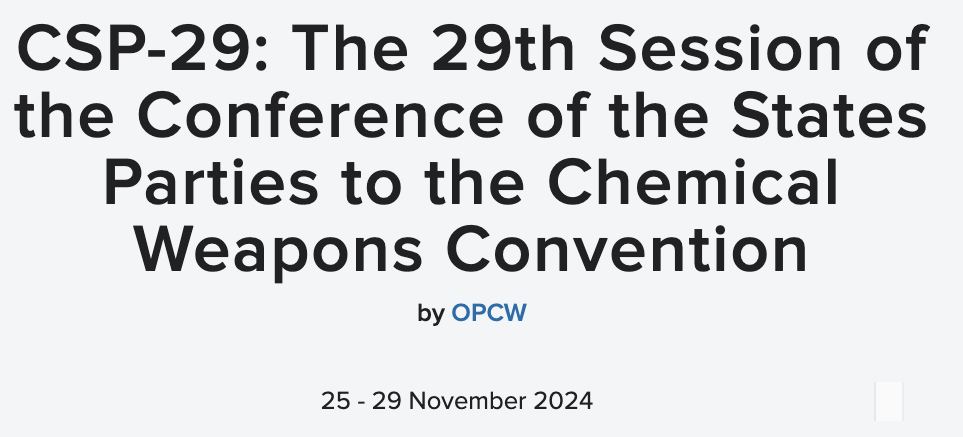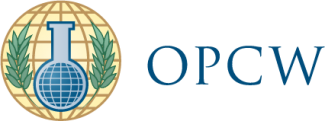NGO Statement: The Intersection of Artificial Intelligence and Chemical Weapons Regulation
Mr. Chairman, Director-General, Distinguished Delegates, Civil Society Colleagues:
As advancements in artificial intelligence (AI) continue to transform the global technological landscape, civil society calls for proactive measures under the Chemical Weapons Convention (CWC) and the Organization for the Prohibition of Chemical Weapons (OPCW) to address emerging AI-driven threats. AI can improve verification, monitoring, and preventive actions within CWC mandates. However, it also poses unique risks in both civilian and military applications.
We, as Civil society, have noted the recent October 2024 Global Conference on the Role of Artificial Intelligence in Advancing the Implementation of the Chemical Weapons Convention (CWC) in Rabat, Morrocco and the June 2024 Berlin Conference on AI and Weapons of Mass Destruction (WMDs). These events initiated much-needed conversations on the challenges and opportunities AI poses in chemical disarmament and non-proliferation. As a civil society conglomerate, we have also noted the observations from OPCW Director-General Ambassador Fernando Arias on how it is critical to monitor and assess the advancements in emerging technologies to make OPCW ‘future ready’, emphasizing the cross-cutting impact of AI on chemical weapons regulation which is influencing various aspects of the OPCW’s mission.

Mr. Chairman
AI’s impact on CW’s regulation presents specific challenges and opportunities for the OPCW. Key developments include drones for chemical dispersal, automated and miniaturized laboratories for covert operations, 3D printing of equipment components, and nanotechnology that enables discrete lab functions.
Enhanced detection systems for metals and chemicals, along with algorithms and computational models capable of generating novel chemicals, further complicate the regulatory landscape. Advances in medical countermeasures and new materials for protective equipment AI’s dual-use nature underscores the urgency of establishing robust regulatory frameworks that prevent AI from being harnessed for chemical warfare or terrorism purposes. CWC Coalition advocates for the
following key principles and actions within the OPCW framework:
1. The OPCW’s implementation strategies must incorporate AI-driven technologies that bolster chemical detection, anomaly identification, and real-time surveillance capabilities. These tools are essential for identifying any misuse of dual-use chemicals swiftly and effectively.
2. AI developments often outpace regulatory oversight. We urge OPCW member states to actively formulate international norms that define AI’s permissible uses in chemical-related industries, emphasizing safety, transparency, and ethical considerations. Collaborative efforts within the OPCW community can guide responsible AI integration while deterring malign activities.
3. As an impactful civil society conglomerate, the CWC Coalition encourages the OPCW to promote research on AI applications relevant to CWC compliance, including secure and ethical AI-based data analysis. Sharing technological advancements and research findings will enhance the collective resilience against the potential weaponization of AI in chemical contexts.4. The opacity surrounding certain AI technologies and their military uses (e.g. LAWS or Autonomous systems) raises accountability concerns. The OPCW should establish standards for transparency and accountability in AI deployment, ensuring that such technologies are used solely for peaceful and protective purposes.
Mr. Chairman
CWC Coalition remains committed to supporting the OPCW’s mission of a world free of chemical weapons. We look forward to ongoing dialogue and collaborative action, believing that collective vigilance and ethical AI governance will be vital in achieving lasting peace and security.
We request that this statement be included in the record of the 29th Conference of States Parties to the Chemical Weapons Convention.
The Full Text (PDF) document can be accessed here on the OPCW website. (November 27, 2024).
